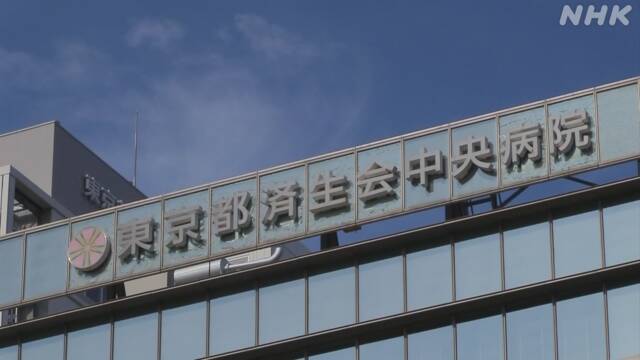While the rapid spread of the new corona virus has not stopped, hospitals in Minato-ku, Tokyo, instead of accepting patients with high severity from neighboring hospitals, have patients with calm symptoms in their own hospitals accepted. , We are promoting cooperation in the region.
Saiseikai Central Hospital in Minato-ku, Tokyo treats patients with relatively severe symptoms, but more than 20 beds remain full.
In order to save as many patients at risk of life as possible, the hospital is making adjustments to vacate beds so that nearby hospitals that treat mild and moderate symptoms can accept patients with worsening symptoms.
Specifically, instead of accepting more severe patients from nearby hospitals, they will accept patients in their own hospital who have subsided symptoms.
On this day as well, instead of accepting a patient in his thirties who needed a ventilator from a nearby hospital, he was in the process of transferring to a moderately ill patient with calm symptoms.
Hospitals called on seven hospitals and health centers in the ward to expand collaboration in these areas and held online discussions this week.
In the discussion, after showing the status of the beds in each hospital, it was discussed that in the future, the status of patients will be shared on the mailing list every morning, and consideration will be given to adjusting the hospitals that can respond according to the severity. rice field.
Dr. Ayumu Yoshito, an infectious disease specialist at Saiseikai Central Hospital, said, "Although transfer adjustments are being made in Tokyo, in cases where there is an urgent need to wait for time, it is necessary to have a sense of speed if it does not go well in each region. So I won't go around. "
"Acceptance of new patients" Requests from health centers, etc.
At the Saiseikai Central Hospital in Tokyo, as the condition of full beds continued, there were a series of requests from health centers and others to accept new patients.
Two hospitals that treat patients with moderate illness have requested that they accept patients in their thirties whose symptoms have worsened to severe conditions.
Dr. Ayumu Yoshito, who is in charge of the corona ward, said, "Both men in their thirties who are likely to need intubation (on a ventilator) will be adjusted. "No," he said, and was adjusting to see if he could vacate the bed to accommodate critically ill patients.
After that, instead of having one moderately ill patient whose symptoms had subsided be transferred to another hospital, he accepted one patient who became severely ill.
Approximately two hours after the adjustment, the patient in his thirties was transported by ambulance.
The other, on the other hand, was unacceptable on this day and continued to make adjustments.
Dr. Ayumu Yoshito, an infectious disease specialist at Saiseikai Central Hospital, said, "The number of people in their 30s, 40s, and 50s who cannot keep their lives without a respirator is increasing. I want to see until the end, but I am accepting patients who need a respirator by exchanging patients with the hospital where the seriously ill patient occurred. As the situation changes from moment to moment, local medical institutions I think there is no other way but to help each other. "

